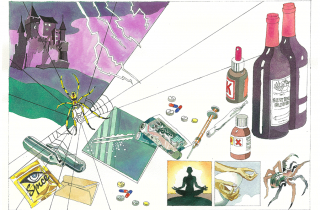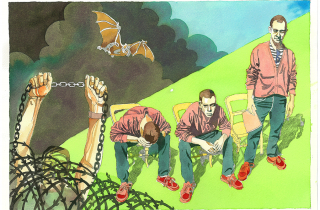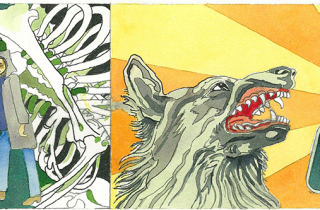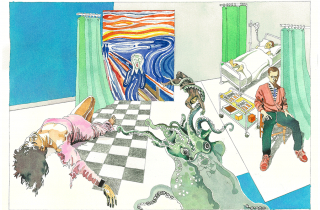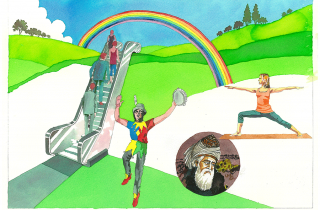So you’ve arrived at this site, and you’re looking for answers and solutions.
That was me, three years ago. I just wanted my son’s addiction fixed and my life to be ‘normal’ again. I wanted to get out of pain and enjoy myself, magically transformed with minimum effort from me.
With the guidance of a gifted counsellor, I began to understand that this scenario was the polar opposite of the journey I was about to embark on.
When you read the rest of this post and you feel irritated, impatient or sceptical, remember this:
There are no quick fixes and you’re going to have to do some serious work. But if you carry out the strategies and plans here, with an open mind and an unflinching intention to make progress – you will change your life, and the life of your addicted child, for the better.
This is the way I would encourage you to navigate through the site.
Stage 1 – Understand and Prepare
- Educate yourself – read the Parent’s Journey Section. And I mean the entire Section. It’s crucial that you understand the nature of Addiction and what has happened to your family.
- Prepare yourself – Read the Plan of Action Section (don’t do anything yet)
- Nourish yourself – Read the Recovery Toolbox Section
You will need time to assimilate all this material and to make plans.
That said, when I first looked for help with my son’s addiction, I was desperate to find solutions and wanted to take some sort of action quickly, so that I could feel some relief from my despair. If you are impatient like me and you want to take some sort of action soon – see Plan of Action – For You/Making a Quick Start.
If this is how you feel, I encourage you to do what you can safely do straight away, which is as follows:
(NB. Only if this feels right for you and you’re impatient like me).
- Read about self-care on the Recovery Toolbox introduction page and implement one or two of the suggestions there this week. (I’ll be writing posts on Self-Care in the weeks that follow).
- Read the posts on Boundaries. Make sure you start with the one in Plan of Action – The Basics /Boundaries. When you have read this post, click on the title of the next post about Boundaries and so on.
- However impatient you feel – remember this: you can’t do this on your own. Tough challenges lie ahead and you will need support. If you can afford a counsellor, that’s great. You don’t have to go that route at all. What often works best is to have several people in your team (with no money involved). Your GP, a sensible neighbour or friend (especially if they have personal experience of addiction in their family); a sympathetic, non-judgemental uncle, aunt or grandparent. You can assemble your support team pretty quickly. They can act as your sounding-board and support you through your emotional and practical challenges.
- When you have understood Boundaries – have a go at putting one or two small boundaries in place next week, or when you feel comfortable doing so (Make sure you talk to everyone in the family about this first). Be warned – there will be a reaction from anyone affected by the boundary you set.
Stage 2 – Now the Work Begins
When you feel you have mastered Stage 1 above, the real work begins.
So now – it’s action stations…
- Practise the exercises and tips in Parent’s Journey / How to Cope and How to Grow.
- Heal yourself – get a programme of self-care going, choosing one option from each of the Body, Mind and Spirit sections in the Recovery Toolbox section.
- Support yourself – gather your team round you. See the paragraphs on “Find Support” and “Gather Your Team” in the post: Plan of Action/For You/
- Make your plan by choosing one of the plan templates in the Plan of Action section. These plans are outlined as possibilities for you. I encourage you to adjust them to suit your particular situation.
- Discuss your plan with your team. Refine the plan.
- Ensure you have support in place for you should there be ‘fallout’ when you take action on your plan.
- Continue referring back to the Parent’s Journey and Recovery Toolbox sections.
- Implement your Plan.
- Review progress on your plan with your Team once a week. Make adjustments.
Rate of Progress
This will depend on how often and how consistently you bring your focus to this site, reading and practising the exercises here and, in time, making your plan and then implementing it and reviewing it.
It might be an idea to make an appointment with yourself in the diary to review your progress each week. Make this on the same day each week if possible, as this encourages you to get into the habit of assessing where you’re at in your Journey and making the necessary tweaks to ensure further progress.
It’s not the speed of your progress that matters – it’s the regularity of you bringing your attention to this area of your life.
The Nature of this Site
You’ll find that, like a game of Snakes and Ladders, you will criss-cross between the different sections and sub-sections of the site. This is meant to happen. Addiction is a complex, ‘circular’ subject, not a simple, ‘linear’ one.
It’s precisely by re-reading posts in these pages that your understanding will build and in time, deepen.
It’s a sort of Gym in here. And repetitions build your fitness for the road ahead.

